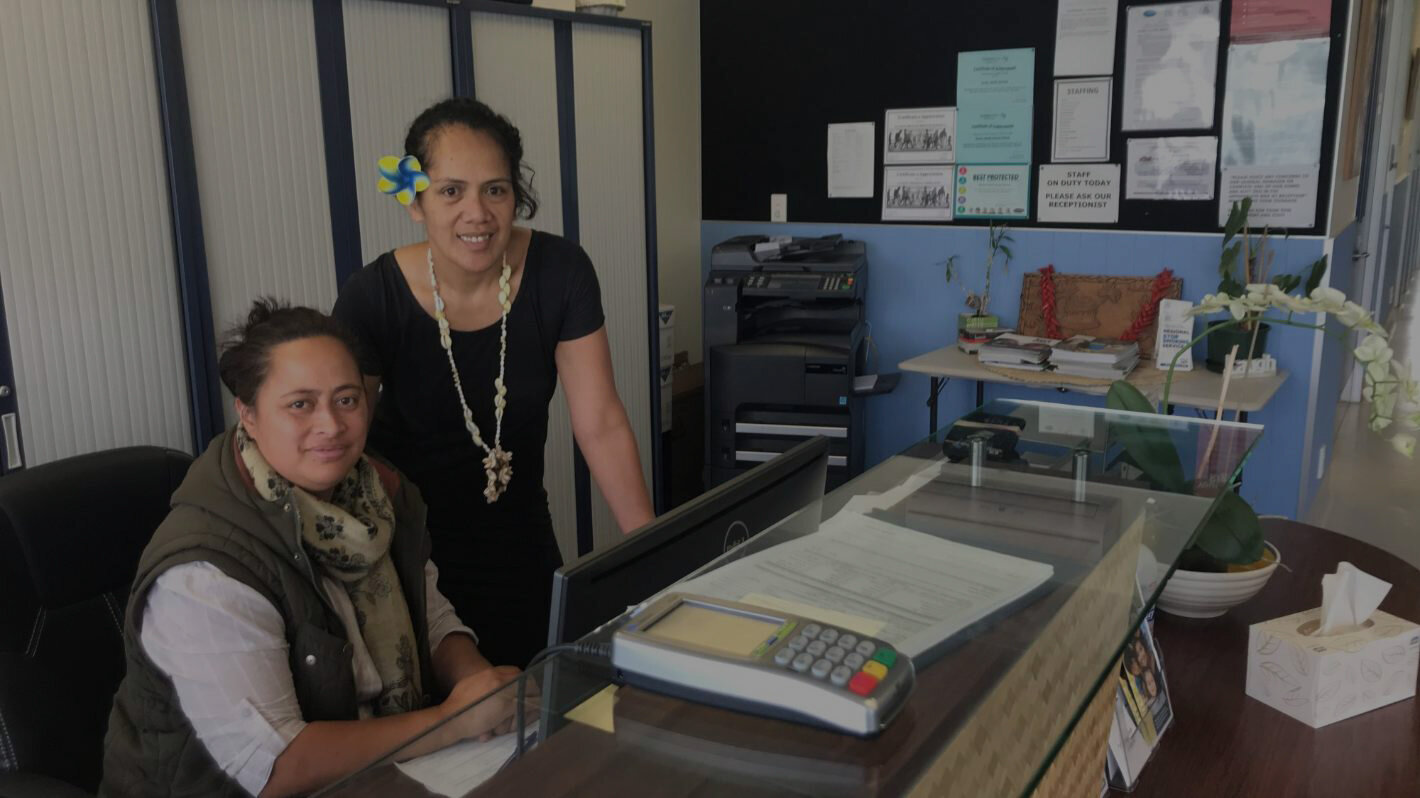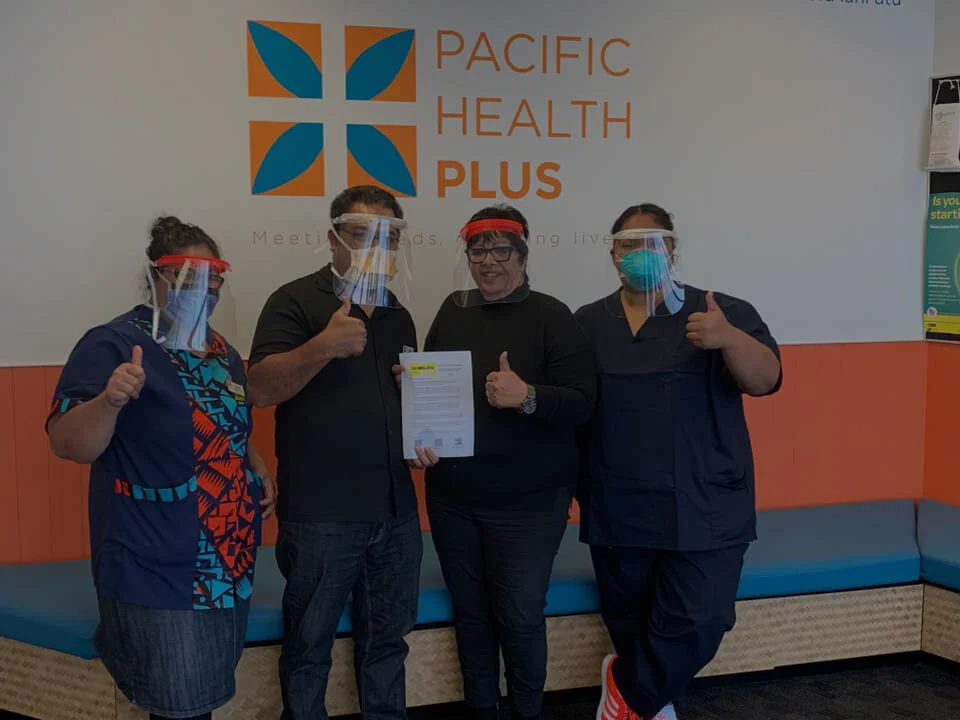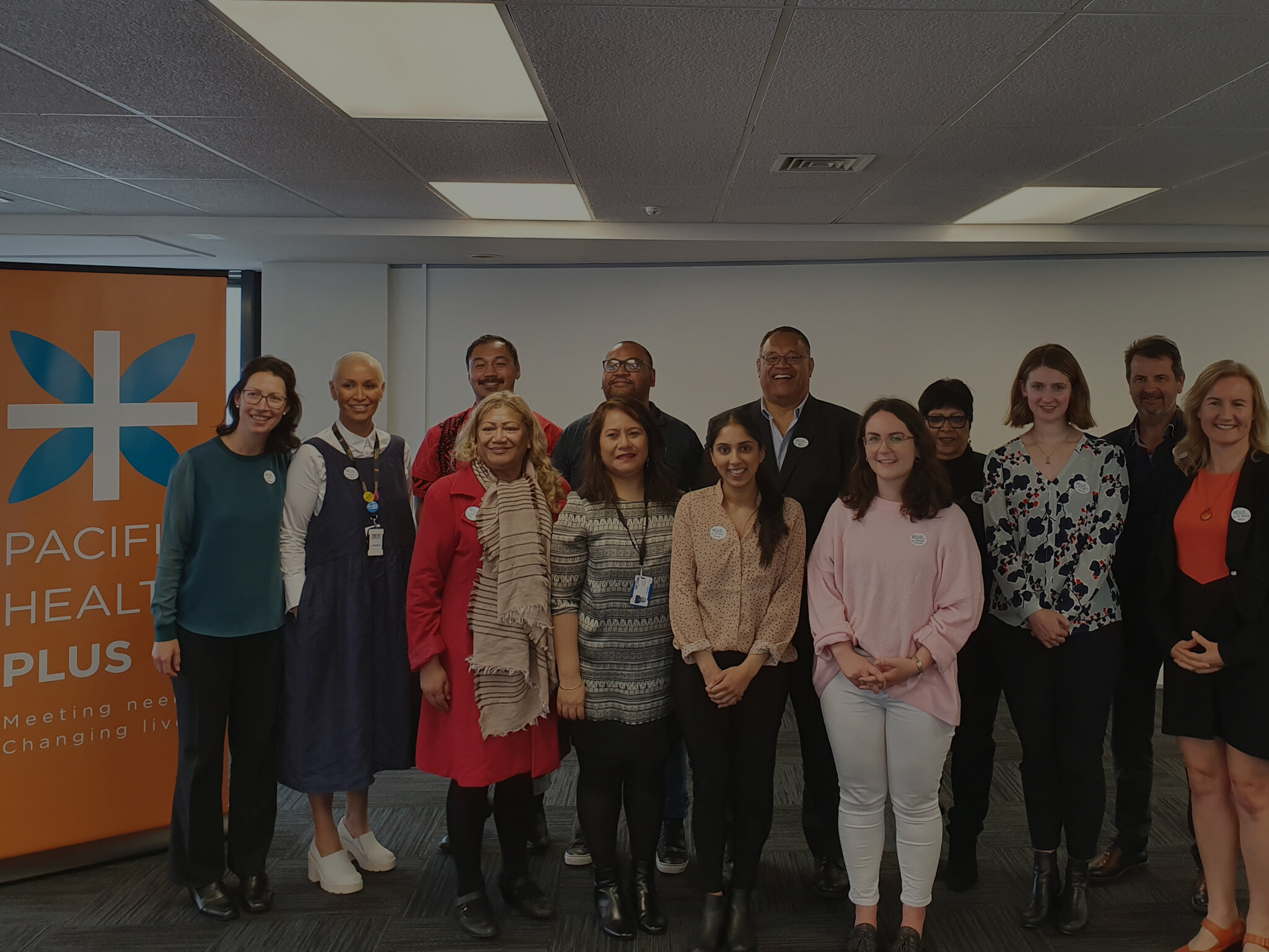
SERVING OUR COMMUNITY
NEWS
&
UPDATES
Mobile Treatment Health Unit
Pacific Health Plus has set up a mobile health unit so that we can provide care to patients who, for whatever reason cannot make it to the clinic for treatment. This means patients will be more likely to seek out treatment, and conditions can be treated at earlier stages in their development.
Pacific Health Plus has set up a mobile health unit so that we can provide care to patients who, for whatever reason cannot make it to the clinic for treatment. This means patients will be more likely to seek out treatment, and conditions can be treated at earlier stages in their development.
Changing the course for Pasifika
"The new health report needs a much stronger focus on early investment at the front line and for prevention, just as we invest in roading projects and infrastructure for the long term." - John Fiso ONZM, Chairman, Pacific Health Plus
Simpson health review must change the course for Pasifika
With the release of the Government’s Health and Disability System Review, we have the opportunity to navigate a new and a more aspirational course.
The report is comprehensive, and clearly identifies what Pacific people have known for a long time: that the health system does not deliver what we need, and is fundamentally inequitable.
It is no secret that 380,000 of our team of five million have disproportionately worse health outcomes than everyone else. Pacific people live five years less than the national average; 300 Pacific children under the age of 5 are hospitalised annually; 60 per cent of rheumatic fever cases are among the Pacific population; Pacific people have higher preventable death rates, respiratory disease, heart disease and diabetes.
In short, Pacific people are at the bottom of the pile when it comes to pretty much all the indicators, and I think we can say, without argument, that the health system is failing this fast-growing section of the New Zealand population.
Isabella Mapusua and Kitiona Tauira at Pacific Health Plus. Sixty percent of PHP's patients are categorised as high-needs.
Inevitably, some remedies have been signalled in the report. For example, to move to greater devolvement of ownership, management and delivery of health services by the communities they are there to serve.
But while this has been succinctly stated for Māori in the report, there is no such equivalency indicated for the Pasifika population.
What is missing is a tailored response made on the basis of need, irrespective of ethnicity. By this I mean an assessment of where the greatest needs lie, and then a bespoke action plan to change that.
The approach, as it is described for Māori in the report, must have Pacific leadership and representation at all levels of health – governance, management, and service delivery, informed by the communities the system is there to help.
In short, to truly solve our biggest health problem we need a Pacific health authority for exactly the same reasons you would have one for Māori. With the same ultimate goal to change downward spiralling health statistics.
John Fiso, chairman of Pacific Health Plus: "The new health report needs a much stronger focus on early investment at the front line and for prevention, just as we invest in roading projects and infrastructure for the long term."
In Porirua, which has the highest Pacific population outside South Auckland, despite 10 years of "investment" and intervention, life expectancy for Pacific people is eight years lower than for others, and this gap has not narrowed over that period.
This must change. At our health practice in Cannons Creek, eastern Porirua, 60 per cent of our patients are high-needs, which means they have serious underlying conditions.
When we initially took over the practice, we had very little access to resources, which meant we had to search for innovative partners and programmes, particularly in the areas of heart disease, diabetes and related diseases. We quickly realised we also had to move into education and preventative programmes to stop the spiral.
In March, during the Covid pandemic, we had to source our own PPE gear offshore and hunt for flu jabs from other practices to make up the shortfall. This came as a huge shock because, knowing the significant underlying health vulnerabilities, combined with high-density housing, low or no incomes and limited access to healthcare, it would be carnage in the community if the virus caught on.
It was hard to fathom that the health system’s funding model prioritised a "mainstream" practice across the road ahead of a high-needs Pacific practice funded at a lower level. That is unacceptable.
Over time we have started dealing directly with the Pacific directorate of the Ministry of Health, the Pacific division of the Capital & Coast DHB, and a Whānau Ora provider of Pacific Futures, and we get a much more targeted, efficient and less bureaucratic response. This means resources get to the front line quickly.
The new health report needs a much stronger focus on early investment at the front line and for prevention, just as we invest in roading projects and infrastructure for the long term. We also need integrated health services to include education, mental health, workforce development and housing. Complex solutions are required for a multi-faceted problem.
And Pacific people must be involved at all levels. Without this partnership, we risk the new system being deaf and blind to the needs of Pasifika, and the opportunity for real change is lost.
There is a new Pacific generation coming through the ranks who are young, talented, educated, aspirational and confronting. They must be empowered to insist on an equal place in all parts of New Zealand. If we can do this, then Pasifika can make a rightful contribution to the social, cultural and economic wellbeing of the country.
The health and disability review has identified that it is time to navigate a new course in health and, as the original explorers in the Pacific, we are ready to set sail and lead the way.
Poor efforts to wipe out Rheumatic Fever
Pacific Health Plus GP Dr Natano and Director Lee Pearce comment on the Government’s poor efforts to wipe out rheumatic fever after several regions have reported a spike in cases this year despite ongoing work to improve living standards.
Pacific Health Plus GP Dr Natano and Director Lee Pearce comment on the Government’s poor efforts to wipe out rheumatic fever after several regions have reported a spike in cases this year despite ongoing work to improve living standards.
Read the article full here:
Introducing Telemedicine
PHP is the first Health Practice in the area to bring this innovation to PHP Covid response. This will aid in keeping our precious workers and patients safe.
PHP is the first health practice in the area to bring telemedicine to it's COVID-19 response. This will aid in keeping our precious workers and patients safe.
Thank you to Ministry of Health for supporting high needs Pacific communities respond to Covid-19.
Facilities outside the front of PHP
Display screen inside PHP
When Art and Health Colide
With an overload of information about COVID-19 being disseminated, it is important Pacific and other vulnerable communities feel they are being spoken to directly.
Article Source: Ministry for Pacific Peoples www.mpp.govt.nz/news-and-stories/when-art-and-health-collide
(Picture caption: Artwork from Michel Tuffery's Handle with Care series.)
With an overload of information about COVID-19 being disseminated, it is important Pacific and other vulnerable communities feel they are being spoken to directly.
This is why Pacific Health Plus (PHP) is using artwork by Wellington-based Pacific artist Michel Tuffery to help inform communities about best practice hygiene for keeping safe from the spread of COVID-19.
The Owner and Board Chair at the Porirua-based Pacific primary healthcare service John Fiso says of the 2234 people enrolled at PHP, 60 percent are high needs patients with chronic conditions.
“Therefore, it is essential we inform our patients of good hygiene practices to keep the vulnerable safe and healthy.
“We must go over and above to protect our Pacific communities.”
The PHP team approached Michel, having worked with him before, to develop some images the organisation could use for sharing information which spoke directly to Pacific communities.
Of Samoan, Rarotongan and Ma’ohi Tahitian heritage, Michel is not only a talented artist, but also a passionate educator who openly shares his kauapapa and knowledge to empower youth through residencies and workshops for school-aged children in New Zealand and abroad.
Michel’s Handle with Care series, take inspiration from postal services, using Pacific and New Zealand postage stamps redesigned with individuals wearing face masks and rubber gloves, stamped over with a fragile sticker.
The artist explains his series shows how fragile the Pacific community is, and that we really need to look after our elderly, and those with health conditions.
“It is hard to know how you can help from isolation but as an artist, creating art to spread important messages, is how I can do my bit for my communities in this tough time,” Michel adds.
The images have been printed as posters and put up around the local community in the pharmacies and supermarkets as well as at neighbouring health clinics and on Facebook and websites.
Michel’s prior work with PHP included assisting with youth engagement and therapy classes as well as decorating a mural outside PHP premises to brighten the otherwise severe surroundings of the building in east Porirua.
Pacific Health Plus is still open, doing flu vaccinations, child immunisations and seeing patients using a variety of methods such as staggered appointments, video/phone consultations.
Visit the Unite Against COVID-19 website for all you need to know about COVID-19 in New Zealand.
COVID-19 Community Support
Thank you to Pacific Health Plus staff and the supporting essential workers from across the Fiso Group who have been providing sustenance by delivering food and care packages to our Pacific Health Plus families who require assistance.
Thank you to Pacific Health Plus staff and the supporting essential workers from across the Fiso Group who have been providing sustenance by delivering food and care packages to our Pacific Health Plus families who require assistance. These essential workers make this all possible. Already many of the community thank you for your service and dedication.
Read more:
https://pacificmedianetwork.com/articles/emotional-experience-delivering-care-packages-in-porirua
https://www.rnz.co.nz/news/pacific/415051/welfare-packs-given-to-people-in-vulnerable-nz-suburb















Joining the fight against Measles
PHP Senior Nurse Kailua Faafoi, volunteered to head to Samoa to help with the vaccination effort against measles - the disease that has currently claimed so many lives.
PHP Senior Nurse Kailua Faafoi, volunteered to head to Samoa to help with the vaccination effort against measles - the disease that has currently claimed so many lives.
Read more:
Otago University Partnership
Over the next ten weeks four medical and health students from Otago University will work at Pacific Health Plus, a primary healthcare service, in Cannons Creek, Porirua, on a research project to better understand patients, their families and the community.
Over the next ten weeks four medical and health students from Otago University will work at Pacific Health Plus, a primary healthcare service, in Cannons Creek, Porirua, on a research project to better understand patients, their families and the community.
Of the 2910 people enrolled at Pacific Health Plus, 93% are high needs patients with acute, recurring problems, often related to heart and renal disease. The prevalence of type 2 diabetes is considerably higher in Porirua (8%) than in other areas in the Wellington Region (4% in Kāpiti, 5% in Wellington, and 6% in Lower Hutt) – and is worst in Cannons Creek.
The project, co-funded by John Fiso, Chairman of Fiso Group and Pacific Health Plus, and Otago University, will help build a meaningful picture of the patient community in Cannons Creek, beyond what the existing clinical data is providing, to improve the response to these significant patient needs.
Dr Rosemary Hall, diabetes physician and senior lecturer at Otago University, will oversee the students with Professor Jeremy Krebs.
“This is an opportunity for the students to explore and understand inequities in our health system and wider determinants on health,” says Dr Rosemary Hall. “It will give them insight into how healthcare works in some parts of New Zealand they may not be familiar with, and hopefully this experience will empower them to make positive changes in the future.”
“We all know the shocking statistics which reveal huge inequity in our health system, but we need to better understand why, and how this can be changed,” says John Fiso, chairman of Fiso Group and Pacific Health Plus. “And we need to understand this from the community.”
The students will be working closely with Fred Ama and Siaosi Mafi, who are established in the community and run exercise, healthy eating and youth programmes from Pacific Health Plus. Together they will spend time with Pacific Health Plus patients and will talk to them about a variety of issues to try and build a picture of that person and their family, and what may be the cause of health problems.
“It is clear that responding to data and charts is not working for the families of Cannons Creek,” said Mr Fiso. “We need to find out why. We can do this by interacting with them, by understanding their worries and needs, who else is in the family, and what is happening in that family – it is not just about clinical data, numbers and spreadsheets – it’s about building a holistic picture to then find a holistic solution.”
“People may look at Pacific Health Plus and think, wow, a health service for the highest needs between a burnt out pub and a stickered building – but inside are real people with real families who are tired of waiting for better outcomes.”
“At Pacific Health Plus we are creating our own solutions, we will do what we can in our own patch for our own community and we are really pleased that Rosemary and Jeremy at Otago University acknowledge this and are able to help us,” said Mr Fiso.
Lee Pearce has just joined Fiso Group to assist with overseeing Pacific Health Plus. (Further information on Lee is in the notes below.) Lee has a long history in the health sector and is focused on increasing the efficiency and quality of service at Pacific Health Plus, on preventative solutions for patients, on building capacity in the workforce, and improving systems and data capture.
“I am hoping this experience for the students will ignite a passion for Pacific health issues,” said Ms Pearce. “We desperately need medical and health professionals to really understand the patient base, the patient and their family life journey and the complexities that exist within. Health is not ‘one size fits all’.”
Pacific Health Plus Youth Fono
An excellent start to the Pacific Health Plus (PHP) Youth Fono this morning. Growing the possibilities and potential of our youth leadership.
An excellent start to the Pacific Health Plus (PHP) Youth Fono this morning. Growing the possibilities and potential of our youth leadership. This first step in preparation for our youth Conference in August.
Molly Fiso, Robyn Lush, Kitiona Yala-Tauira, Fred Ama, Rebecca Ama, Jayne Paese, Sia Temu, and Shelley Addison thank you for all your skills in delivering this excellent programme for youth to find solutions to community health and wellbeing.
Michel Tuffery with Pacific Youth
What an honour to have internationally renowned artist Michel Tuffery ONZM of Samoan Rarotonga and Tahitian heritage share his knowledge and experiences with our PHP youth.
What an honour to have internationally renowned artist Michel Tuffery ONZM of Samoan Rarotonga and Tahitian heritage share his knowledge and experiences with our PHP youth. We appreciate greatly the proceeds of some of his artwork donated to our Pacific youth.
We thank him for his generosity (he spoke from the heart of giving back) and it is these people of goodwill that improve our most in need of communities.
Fa'afetai
































